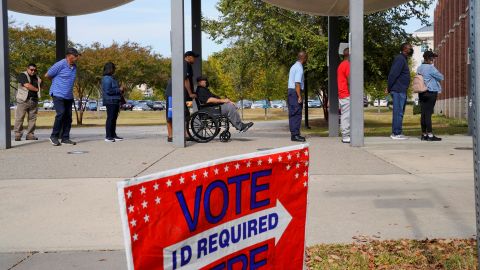CNN / November 1, 2022
Not only do we have candidates who have questioned the 2020 election or refuse to say they will accept defeat this year, but numerous states and localities also will vote on measures to change how elections are run or who may vote in them. The outcomes of those ballot measures could have a significant impact on the health of American democracy moving forward.
A few states will determine whether to make voting easier. Connecticut will decide whether to amend its state constitution to allow for early voting, a needed improvement given that it is one of the few states without any no-excuse early voting opportunities.
Proposal 2 in Michigan would establish nine days of early voting and would improve the absentee balloting process, such as requiring the state to fund prepaid stamps, provide a ballot tracking system and offer ballot drop boxes. Enshrining these pro-voter policies in the state constitution would immunize them from repeal by the state legislature.
Arizona and Nebraska are on the other side of the ledger, asking voters to approve rules that could make it harder for some people to cast a ballot. Arizona has a proposed voter ID measure, which would require additional identifying information on voter affidavits that accompany mail-in ballots and would eliminate the ability of in-person voters to show two pieces of non-photo identification in lieu of a photo ID. Nebraska voters will similarly decide on a state constitutional amendment that would require a photo ID for voting.
Studies show that strict photo ID requirements can have a disenfranchising effect, especially on minority communities, while they do not improve election integrity given that in-person impersonation rarely occurs. At a time when democracy is under attack, we should focus on ways to improve voter turnout, not make it harder to participate.
There are also ballot initiatives in Ohio and Louisiana to amend the state constitutions to ensure that noncitizens cannot vote in local elections. These measures are likely a response to localities in some places, particularly in California and Maryland, that allow noncitizens to vote.
An appeals court recently put on hold a state trial judge’s decision that the San Francisco law is unconstitutional under the California constitution, meaning that noncitizens can vote in this year’s election.
Similar litigation is underway over New York City’s law; a trial court ruled the law to allow noncitizens to vote unconstitutional, but the case is on appeal. Meanwhile, Oakland, California, residents will vote on whether to allow resident noncitizens who are legally recognized caregivers of a child to vote in local school board elections.
Oakland will also decide whether to adopt a “democracy vouchers” program for public financing of local campaigns, similar to the system for funding campaigns in Seattle. Portland, Maine, has a Clean Election Fund measure on the ballot to create a public financing system for local elections.


